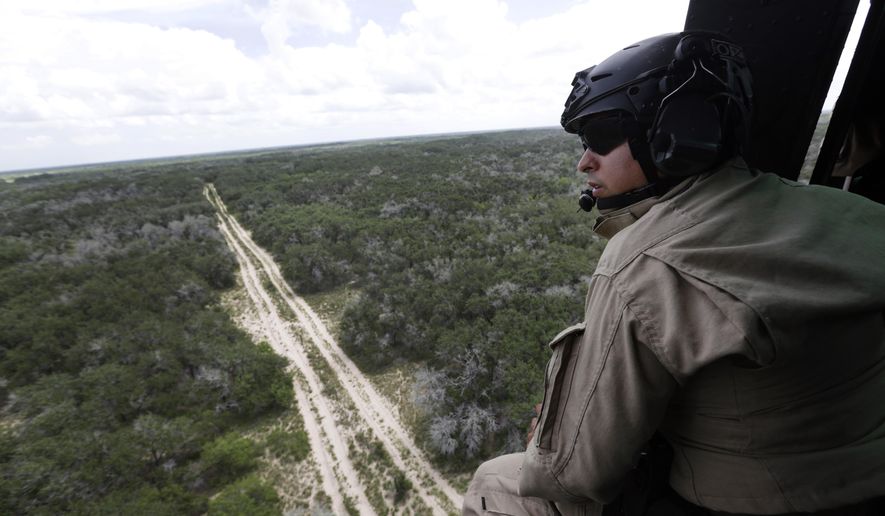Two top members of Congress headed to the border Sunday to investigate a drug cartel attack on a U.S. Customs and Border Protection helicopter, which raised more concerns about escalating violence spilling north.
Rep. Jason Chaffetz, Utah Republican and chairman of the House Oversight and Government Reform Committee, and Rep. Blake Farenthold, Texas Republican, were planning to get a firsthand look at the situation in Laredo, Texas, after the helicopter was forced to make an emergency landing Friday.
No injuries were reported, but the incident happened just days after Mr. Chaffetz and Rep. Filemon Vela of Texas, the ranking Democrat on the oversight subcommittee on border security, sent a letter questioning whether the State Department was taking the cartel violence seriously enough.
In particular, they wondered why the department was poised to cut the danger pay for its diplomatic personnel in Nuevo Laredo and Matamoros as authorities in northern Mexico were being attacked with stunning frequency in the drug war.
“In light of the widespread violence in northern Mexico, and the crime-fueled unrest in Matamoros, Nuevo Laredo and Guadalajara, we urge you to take all steps possible to reduce the level of violence, and to protect the lives of Americans working there,” the congressmen wrote last week to Secretary of State John F. Kerry.
The State Department declined to say anything specific about the move to cut pay, which Mr. Chaffetz was told about during a personal investigation into the situation.
“We regularly review all of our allowances to evaluate whether they’re appropriate,” department spokeswoman Marie Harf told reporters Friday.
Ms. Harf said the department would respond to the congressmen, who posed a number of questions and demanded a briefing on the security situation.
Employees in Matamoros, just south of Brownsville, Texas, collect a 15 percent danger pay allowance, while those in Nuevo Laredo, on the other side of the Mexican state of Tamaulipas, receive a 20 percent bump.
The State Department’s traveler alert warns Americans visiting that region about “significant safety risks, including explosions of violence between rival criminal gangs or the gangs and the Mexican military.”
The department warned that “no highway routes through Tamaulipas are considered safe” and that the number of kidnappings and abductions of Americans spiked last year.
Twice in February, the U.S. Consulate in Matamoros warned Americans about rolling gunbattles between competing cartels and issued specific warnings to State Department employees to stay indoors to avoid cartel gunmen.
“Families must live, work and educate their children in the shadow of this threat. Further, even if U.S. personnel in these posts are not directly targeted, they run the risk of being in the wrong place at the wrong time when violence occurs,” the two lawmakers wrote.
The Obama administration has said the drug cartel violence in northern Mexico is troubling but has been quick to insist that the bloodshed has remained chiefly south of the border and hasn’t spread into the U.S. The bigger cities along the border are among the safest of their kind, the administration said.
“We take the security situation very seriously no matter where,” Ms. Harf said. “That certainly includes Mexico. We take every threat seriously, certainly. We constantly assess our security needs. We’ve also said that multiple times. But we think it’s important to have a diplomatic representation in these places and locations. And that’s why we do.”
She said millions of U.S. citizens visit Mexico safely each year, which is why the State Department has to keep diplomatic posts open.
• Stephen Dinan can be reached at sdinan@washingtontimes.com.




Please read our comment policy before commenting.